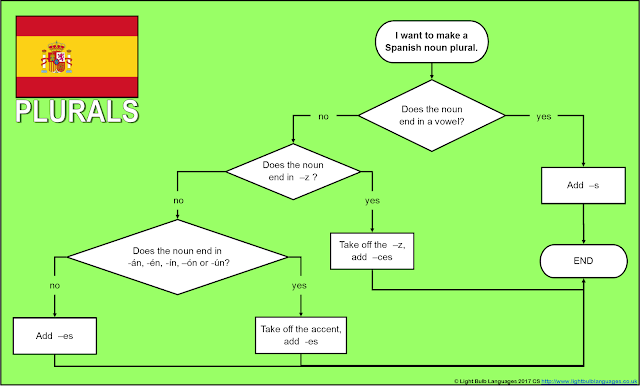While looking for something else yesterday, I found Mundo Primaria. It's a website intended for Spanish children, but has plenty to offer us as teachers of Spanish, both in primary and secondary.
Here are my favourite pages:
- Chistes cortos para niños At Language World, Glennis Pye recommended jokes as good short texts for translation. This page has a slide show of 25 jokes.
- Lecturas cortas These texts too would be good for translation, particularly the non-fiction ones. El Sol is among the texts that would also be useful for reading in Key Stage 2.
- Cuentos infantiles cortos Lots of short stories of different genres.
- Infografías educativas The first ones are for English, but look further down the list and there are some good word mats for maths and the solar system. I particularly like this food pyramid one.
- Ejercicios de ciencias sociales Downloadable worksheets for social sciences. The geography ones are to do with the map of Spain (which is what I was looking for originally!) and even if you don't use the exact resource it will give you some ideas for teaching the geography of Spain. The Vida en sociedad and Historia worksheets are also useful for cross-curricular learning in Key Stage 2 and even Key Stage 3.
- Ejercicios de lengua Worksheets that provide useful ideas for teaching grammar, especially in Key Stage 2.
- Números naturales hasta el millar These maths worksheets would be useful for any student learning big numbers in Spanish.
- El Euro Some useful adding-up-money sheets (The rest of the maths sheets can be accessed from here.)
























